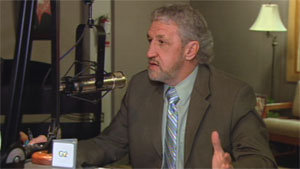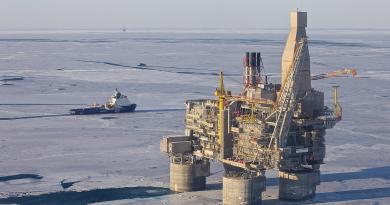Northern mining exploration creates job boom in Canada’s Yukon
The mineral exploration boom Canada’s northern Yukon territory is translating into jobs, with a record number of people working in the territory in June.
The Yukon Bureau of Statistics says 19,200 people were working in June — more workers than at any other time since the territorial government started tracking job figures in the early 1990s.
Much of the employment boom can be attributed to jobs in Yukon’s mineral exploration field, as well as spinoff jobs in the service and supply companies, said Claire Derome, president of the Yukon Chamber of Mines.
“This is having a real impact on the suppliers — they are very busy. New companies are setting up, also, in the Yukon,” Derome told CBC News.
Promising discoveries
The mineral exploration rush in Yukon began more than a year ago following some promising mineral discoveries. Many junior mining companies are spending this summer staking or assessing what potential resources are in their claims.
Yellowknife-based Trinity Helicopters, which opened a Whitehorse base this summer, has added 21 positions.
“We’re a permanent base here. We’re not looking to just cash in on the gold rush and leave,” said Jayson Calder, the company’s Yukon manager.
“We’re committed to becoming, not just an important member of our industry, but also an important member of the community.”
Pelly Construction’s Keith Byram, who helped build the Faro mine and has seen a few Yukon mining booms, said long-term jobs will be created if the current exploration work results in more mines.
“We always think, ‘Well, this will last forever.’ And of course, it won’t,” Byram said.
“So one of these days, I guess, it will slacken off. But just looking at worldwide demand, I can’t see that happening for quite a while.”
Staking rush slows down
A total of 115,610 claims were staked in the territory last year, followed by 77,901 claims in the first six months of this year, according to the territorial statistics bureau.
The staking rush has been welcomed especially in small Yukon communities such as Mayo, where business usually falls off dramatically in the winter.
“It did help. Instead of being empty, we had full rooms. It makes a big difference, we can pay the bills,” said Tina Gates, who works at the Bedrock Motel in Mayo.
But the number of claims dropped off sharply in June, when only 7,000 claims were staked.
Taking stock of claims
Lara Lewis, a geologist with the Yukon Geological Survey, said junior mining companies may now be taking stock of what they have in their claims.
“Companies have acquired their land packages and now they’ve got to assess them and see what they have,” Lewis said.
“Instead of staking, they’re now going on to the next phase. They’re soil sampling, prospecting, mapping, just looking and assessing what they actually have on the ground.
Ed Long of All-In Exploration, which stakes claims for mining companies, said what happens now depends on what mineral deposits, if any, companies can find in their claims.
“If there’s more discoveries made, I think the staking will keep going steady,” he said.
Originally posted August 1, 2011



